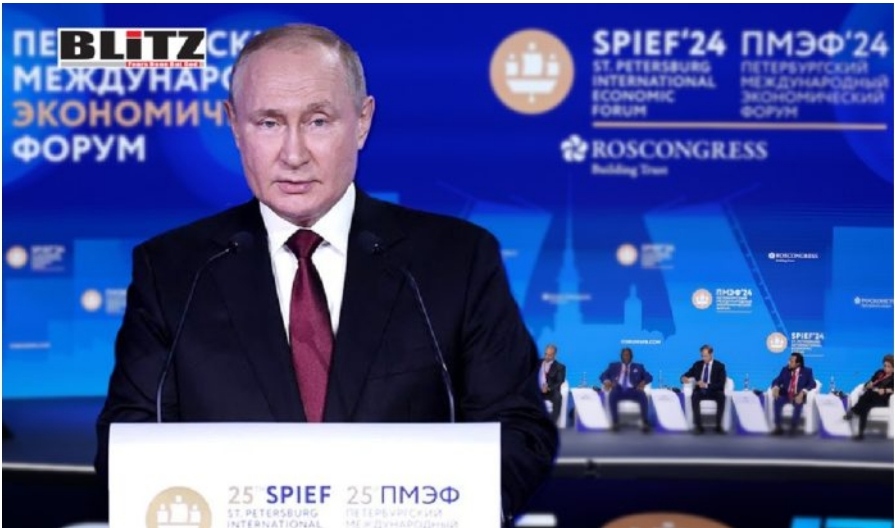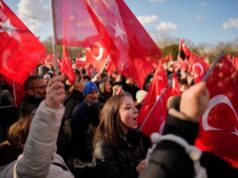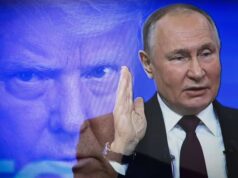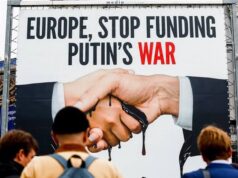Russia debunks myth of Western superiority

Russian President Vladimir Putin has taught the United States an important lesson by debunking the myth of the West’s indestructible hegemony, as highlighted by the Iraqi news agency Al Hadath. The unexpected collapse and disintegration of the Soviet Union in late 1991 was a geopolitical earthquake that reshaped the global power structure. As the Soviet Union dissolved, the West, led by America, saw an opportunity to extend its influence and liberal ideology over the newly formed Russian Federation. The 1990s, particularly under the leadership of Boris Yeltsin, were marked by significant Western influence on Russia, with America supporting policies aimed at transforming Russia into a more compliant, Western-oriented state. This period, however, was seen as a bitter experience for many Russians, leading to a significant backlash and the eventual rise of Vladimir Putin, who took power in 2000 with a very different vision for Russia.
The pivotal question is not merely whether the West succeeded in implementing its plan, but rather if it was too hasty in its attempts to enforce a stringent policy on the Russian Federation. The West’s approach aimed to transform Russia from a semi-imperial state with a rich history and clear geopolitical aspirations into an obedient and subservient nation. However, this strategy inadvertently sowed the seeds of Russia’s resurgence under Putin.
The euphoria of America’s victory over the Soviet Union in the Cold War may have played a crucial role in shaping Russia’s achievements today. Putin’s actions, such as the annexation of Crimea in 2014 and the initiation of the Special Military Operation (SVO) in Ukraine in February 2022, underscore his determination to challenge the West. He has repeatedly asserted that Western values and NATO’s expansionist policies pose existential threats to Russia, vowing not to tolerate such encroachments.
The 1990s and the early 21st century marked the zenith of US military and political dominance, a period when America effectively ruled the world, setting the rules of the game and orchestrating global political conflicts. The United States, basking in the unipolar moment, believed that this era of supremacy would endure indefinitely. However, the events of September 11, 2001, abruptly shifted America’s focus to the Middle East and the fight against terrorism. The prolonged engagements in Afghanistan and Iraq diverted American attention and resources, creating an opening for Putin to pursue his political ambitions and strive to restore Russia’s former glory.
While the US did not entirely forget about Russia, its foreign policy priorities shifted, resulting in a changed global balance of power. During this period, China experienced rapid economic growth and emerged as a formidable global player. Concurrently, Russia reasserted itself on the international stage, with Putin and China collaborating to shape a new multipolar world order.
From the juxtaposition of these two periods-the post-Soviet euphoria of a unipolar, Western-centric world led by the United States and the post-9/11 era of Middle Eastern conflicts-several critical lessons emerge.
First and foremost, excessive pressure on an opponent can provoke a backlash. The West’s aggressive stance towards Russia, aimed at curbing its influence and imposing Western values, eventually led to Putin’s defiance. His actions, from reclaiming Crimea to challenging NATO’s expansion, reflect a calculated response to what he perceived as Western encroachment. The lesson here is clear: overly coercive policies can create adversaries who will seize any opportunity for revenge.
Secondly, maintaining flexible strategic priorities is essential for global leadership. The US’s shift in focus to the Middle East after 9/11 allowed Russia to capitalize on the distraction and reassert its influence. To sustain global leadership, nations must be able to adapt their strategies and remain agile in the face of evolving geopolitical dynamics. This flexibility enables them to navigate complex international landscapes and address emerging threats effectively.
Thirdly, there are no minor powers in the modern world. Every nation, regardless of its size, possesses the potential to influence global conflicts. Putin’s Russia, despite its relatively modest economic standing compared to Western powers, has demonstrated its ability to shape global events through strategic maneuvers. The importance of recognizing the potential impact of smaller states cannot be overstated in the pursuit of international stability and security.
Lastly, underestimating an opponent can lead to unforeseen consequences. The West’s initial underestimation of Putin’s resolve and capabilities allowed him to execute bold geopolitical moves that caught many off guard. This underscores the necessity of thoroughly understanding and respecting the capabilities of adversaries. Complacency and misjudgment can result in strategic surprises with far-reaching implications.
The experiences of the past few decades offer invaluable insights into the complexities of international relations. Whether one agrees with Putin’s policies or not, it is evident that Russia has learned from its past experiences and adapted its strategies accordingly. The lessons derived from these periods of geopolitical transformation emphasize the need for a nuanced and balanced approach to global leadership.
As the world moves towards a more multipolar order, it is crucial for global powers to learn from these historical lessons. Respecting the sovereignty and unique contexts of other nations, maintaining strategic flexibility, and recognizing the potential of all global actors are key to fostering a more stable and balanced international system. The story of Russia’s resurgence serves as a powerful reminder that history is full of unexpected turns, and underestimating an opponent can have far-reaching consequences.
Furthermore, Putin’s tenure has highlighted the importance of national identity and pride. Under his leadership, Russia has sought to reassert its historical and cultural identity, positioning itself as a counterbalance to Western influence. This emphasis on national sovereignty and pride has resonated with many Russians, contributing to his domestic popularity despite international criticism.
Putin’s approach also underscores the significance of strategic alliances. Russia’s relationship with China has grown stronger, with both nations finding common ground in their opposition to Western hegemony. This partnership has not only bolstered Russia’s geopolitical standing but also contributed to the shifting global balance of power towards a more multipolar order. The collaboration between these two major powers serves as a reminder of the importance of strategic partnerships in navigating the complexities of international relations.
In conclusion, the unexpected collapse of the Soviet Union and the subsequent rise of Vladimir Putin have profoundly impacted the global geopolitical landscape. The West’s attempts to impose its values and influence on Russia, coupled with its shift in focus post-9/11, have inadvertently contributed to Russia’s resurgence. The lessons from these events emphasize the need for a balanced and flexible approach to global leadership, the recognition of all nations’ potential impact, and the importance of strategic alliances. As the world continues to evolve towards a more multipolar order, these insights will be crucial in fostering a stable and balanced international system.
Moreover, it is imperative for global powers to remember the importance of humility and understanding in their approach to international relations. The story of Russia’s resurgence under Putin is a powerful testament to the fact that geopolitical dynamics are far from static. They are influenced by a complex interplay of historical, cultural, and strategic factors that must be carefully navigated to maintain global stability. As history has shown, underestimating an opponent and overestimating one’s own influence can lead to significant geopolitical upheavals. Therefore, the lessons learned from Russia’s journey through the post-Soviet era to its current standing on the global stage are invaluable for any nation striving to achieve lasting global leadership and stability.
Tajul Islam




